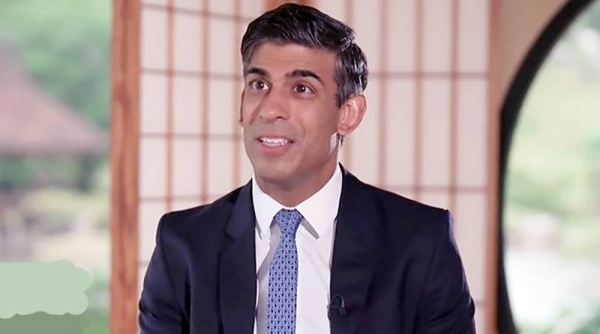
The new Conservative leader must make sure the party focuses on its traditional base rather than just chasing voters who defected to the likes of Reform, its chair has said before the Tories’ first conference since their crushing election defeat.
Richard Fuller, the North Bedfordshire MP, who has served as interim chair since the election, will announce details of a review of the loss at the gathering in Birmingham, as well as structural changes to start modernising the party.
While Fuller must remain neutral, his comments echo concerns from others that the contest thus far between Kemi Badenoch, Robert Jenrick, Tom Tugendhat and James Cleverly has seen the candidates edge towards the right in an effort to combat Reform.
There has, in contrast, been little discussion about how the Tories can renew their appeal to more moderate voters, particularly those who deserted them for the Liberal Democrats, who took about 60 seats from the Conservatives on 4 July.
“The Conservative party is at its best when it connects to all parts of society,” Fuller said. “And I think, if we’re honest, over the last two decades or so we haven’t kept our eye on carrying that party message to all the parts of the country, all different communities who have small ‘c’ conservative values.
“We’ve got very, very good as a party at focusing on the marginal voters in the marginal constituency that can achieve a majority in government.
“My message to the new leaders is, you can’t just do that. We have to look at those areas which have traditionally been returning Conservative MPs, and make sure that we broaden the Conservative base in those constituencies.”
Fuller is ideally placed to understand the anguish of ousted Tory MPs, having lost his original seat of Bedford to Labour in 2017. He returned in the other constituency two years later.
Asked why he thinks so many traditional Tories lost faith, he said: “They were deeply disappointed in the behaviour and outcomes of the last five years by the parliamentary party. They felt that we were not united, that too often we didn’t have our eye on the ball of serving the national interest.”
While a number of them “looked for anyone to register their protest”, whether the Lib Dems, Labour or Reform, a lot simply stayed at home and didn’t vote, he argued.
Fuller has helped put together a conference which will see the candidates grilled by members on the main stage, as well as giving a formal speech and appearing at numerous fringe events. This was, he says, very deliberate.
“I think it will be really interesting, observationally, to see how the leadership candidates respond and perform in the different ways we’re testing them out.
“They wanted a long contest, they’ve got a long contest. But that means conference is going to test them – on their values, their motivations, why they wanted to be involved in public service. We’re going to look at their ideas, see how they respond to questioning, listen to their vision.
“Being leader of a party is not a cakewalk. Politics is really tough. Candidates should expect to have to do the hard yards if they want to be leader of the party and then run a general election campaign, and this is a good trial for that.”
Another innovation will be member-participation debates in the main conference hall on subjects including immigration, the economy and free speech – an attempt to more fully involve a party rank-and-file who regularly complain about being marginalised by the leadership.
“When I was younger it used to be very routine that local associations would put forward motions at conference for debate, and members would get their chance to speak in those debates,” Fuller said.
“And for some reason over the intervening period, that got less and less and then was taken away completely. So this year I brought them back.”












